
10 Bad Resume Examples: Avoid Making These Mistakes Now
Bad resume examples are useful for two reasons. One: most of the time they’re funny resumes to read. Two: you can learn how not to make a bad resume yourself.

You’re switching your alma mater for the private sector. Make the transition seamless with a great PhD resume.
Writing a dissertation is hard. The annoying thing is that it turns out that finding a job in industry isn’t any easier. A PhD resume for industry goes against everything you’ve learned so far. More is no longer more. More is now too much. Industry has less time and less patience. You have seconds to impress. Seconds.
So how do you switch to the less is more mentality without losing anything valuable? How do you compete with candidates who already know the game? Rest easy. We’ve got the perfect summary of what it takes to go from “ignore” to “interview” in less time than it takes you to find a parking spot on campus.
Want to save time and have your resume ready in 5 minutes? Try our resume builder. It’s fast and easy to use. Plus, you’ll get ready-made content to add with one click. See 20+ resume templates and create your resume here.
Sample resume made with our builder—See more resume samples here.
Check out our other articles for academics:
Not sure what the difference between a resume and a CV is, check: CV vs Resume. What’s the difference?
Gisela Arbogast
913-200-4195
Objective
Teaching Fellow and Program Coordinator with 5+ years of experience at prestigious learning institutions. Looking to leverage program management and outreach skills to expand learning program audience at the Treyner Institute.
Work Experience
Graduate Admissions Associate
Columbia University, New York, NY
2019-
Key achievement:
Teaching Fellow
Columbia University, New York, NY
2018-
Key achievement:
Senior Tutor
Columbia University, New York, NY
2017-2018
Education
Ph.D. in Social Anthropology
Columbia University, New York, NY
2019
B.A. in Anthropology
University of Pittsburgh, Pittsburgh, PA
2015
Skills
Affiliations
Contributing Editor, Cultural Anthropology
Languages
Interests
Neoliberalism, human rights, and toxicity in gender studies
Forensic science
E-marketing in higher education
Here’s how to write a PhD resume that will light up the room with alacrity, eloquence, and candor:
A PhD resume is what you’ll want to use for any job that’s not research oriented or academic. It focuses primarily on your professional experience and skills which is important in cases where the position won’t need a PhD and the hiring manager won’t be able to appreciate your contributions to academia.
This landscape is different from what you’ve known so far. The business world doesn’t have time for lengthy explanations and debates. It wants results— now.
You’re going to have to modify your resume to make it suit private sector needs better.
Intrigue the hiring manager using the following resume formatting guidelines:
At this point you might also be wondering how long your resume should be. If you have a few years of experience outside of academia, go for two pages. Otherwise, one-page resume template should do the trick.
Introduce yourself through your resume profile, or more specifically, a resume objective or summary. It’s a short and sweet paragraph at the top of your PhD industry resume that explains why you’re the person for the job. Think of it as an attention-grabbing thesis title.
Use a career summary if you have more than a couple of years of experience that you can neatly translate into the private sector:
If you’ve spent most of your time immersed in books lately, opt for the career objective:
There’s no need to drown this section in a ton of information. Keep it 3-4 sentences long max and tailor it to the job description of the position you’re applying for.
Use resume keywords to pass the ATS scan. Check:What are Resume Keywords?
You know what your greatest challenge is now? Your resume experience section needs to show your pragmatic side. You see, the hiring manager realizes that you know your stuff. Make them realize that you can also get the job done:
Suppress your academic instincts, this isn’t another dissertation—there’s no room for irrelevant info here.
Pro Tip: Don’t come up with roles or responsibilities that you never had just to make yourself look more appealing. Recruiters do background checks and will verify whether you’re telling the truth through tests and interviews.
Now this is the section where you’ll probably feel strongest, and it’s no wonder, you’re a real brain!
Here’s how to nail your education section:
Again, don’t think plethora, think pellucid. You probably want to take this opportunity to list all your certifications on your resume, but leave it for a separate section to keep things clear and easy to read.
Studied abroad? Check how to put it on your PhD resume: Studying Abroad on a Resume
This is where you get to do something that you don’t do often in academia—you highlight your skills:
When making a resume in our builder, drag & drop bullet points, skills, and auto-fill the boring stuff. Spell check? Check. Start building professional resume template here for free.
When you’re done, Zety’s resume builder will score your resume and tell you exactly how to make it better.
Having a PhD doesn’t mean that you’ve got it made. It actually sometimes even makes finding a job a lot harder. Extra sections on PhD resumes give you a chance to highlight some extras that you have and others probably don’t. So go ahead and extol.
If you’re wondering if you should include a cover letter, then let’s make it super clear—yes, you do.
Write the best PhD cover letter this side of the Ivy League with the following tips:
Keep it neat, concise, and no obsequiousness. The ideal length of an effective cover letter is 1 page. Anything longer is just gratuitous.
Read more:How to Write a Cover Letter
Plus, a great cover letter that matches your resume will give you an advantage over other candidates. You can write it in our cover letter builder here. Here's what it may look like:
See more cover letter templates and start writing.
And once you have all that sent, remember to follow up on your job application! Things just don’t fall into your lap in academia, the same thing goes for looking for jobs in private industry.
That’s what a successful PhD resume looks like in a nutshell.
Thanks for reading. Have any insider tips or tricks to share about creating the perfect PhD resume? Share them in the comments below!
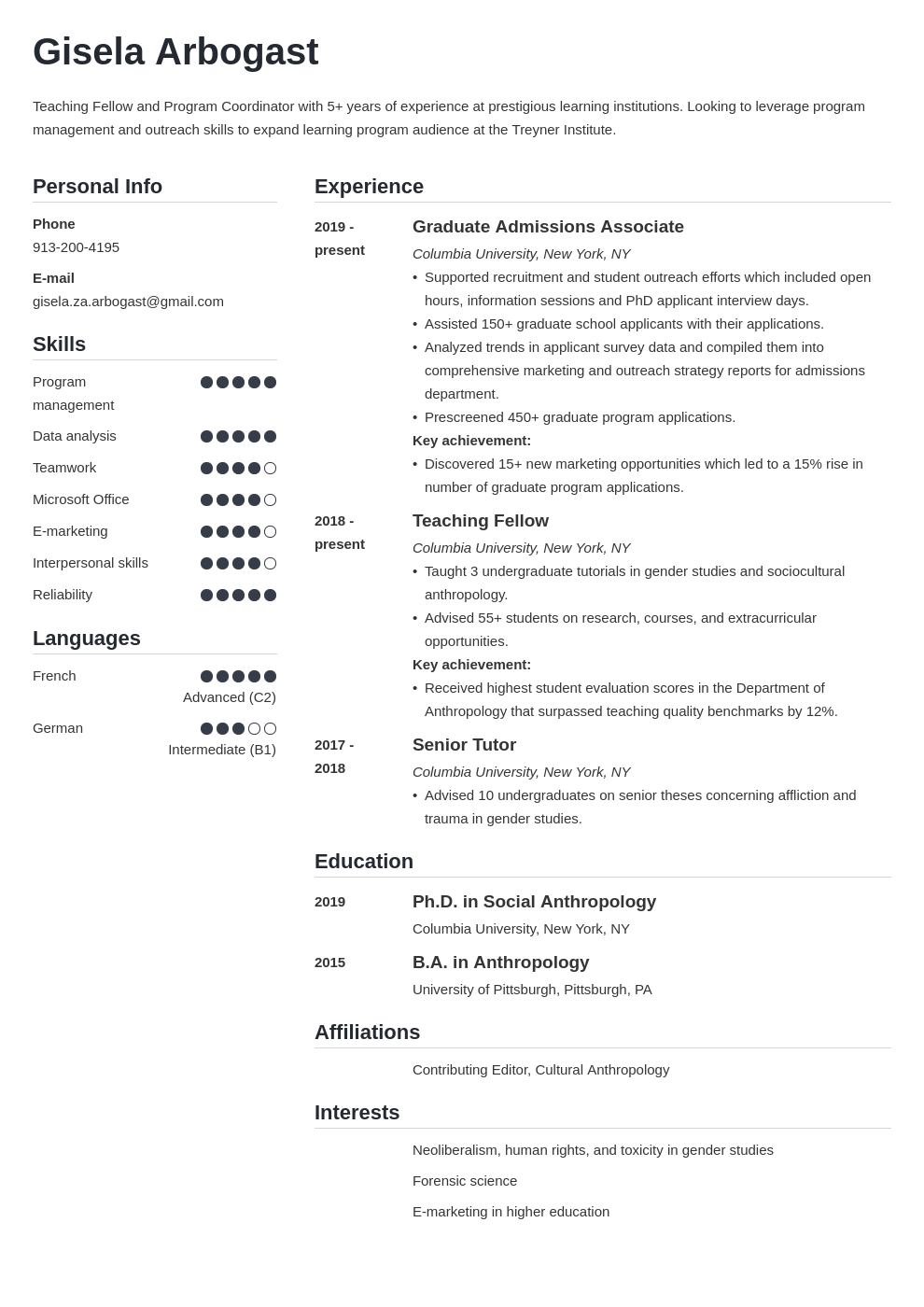
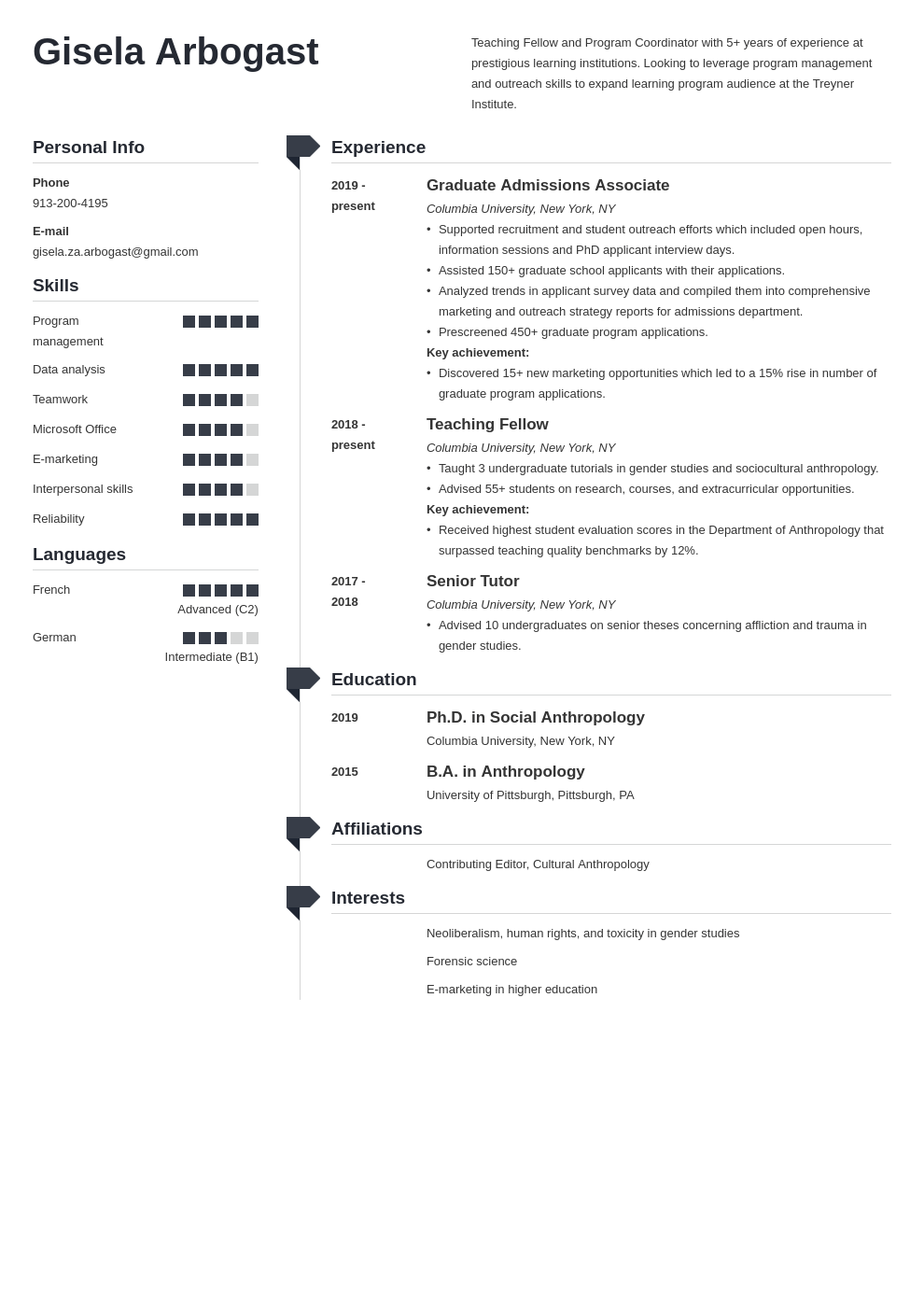
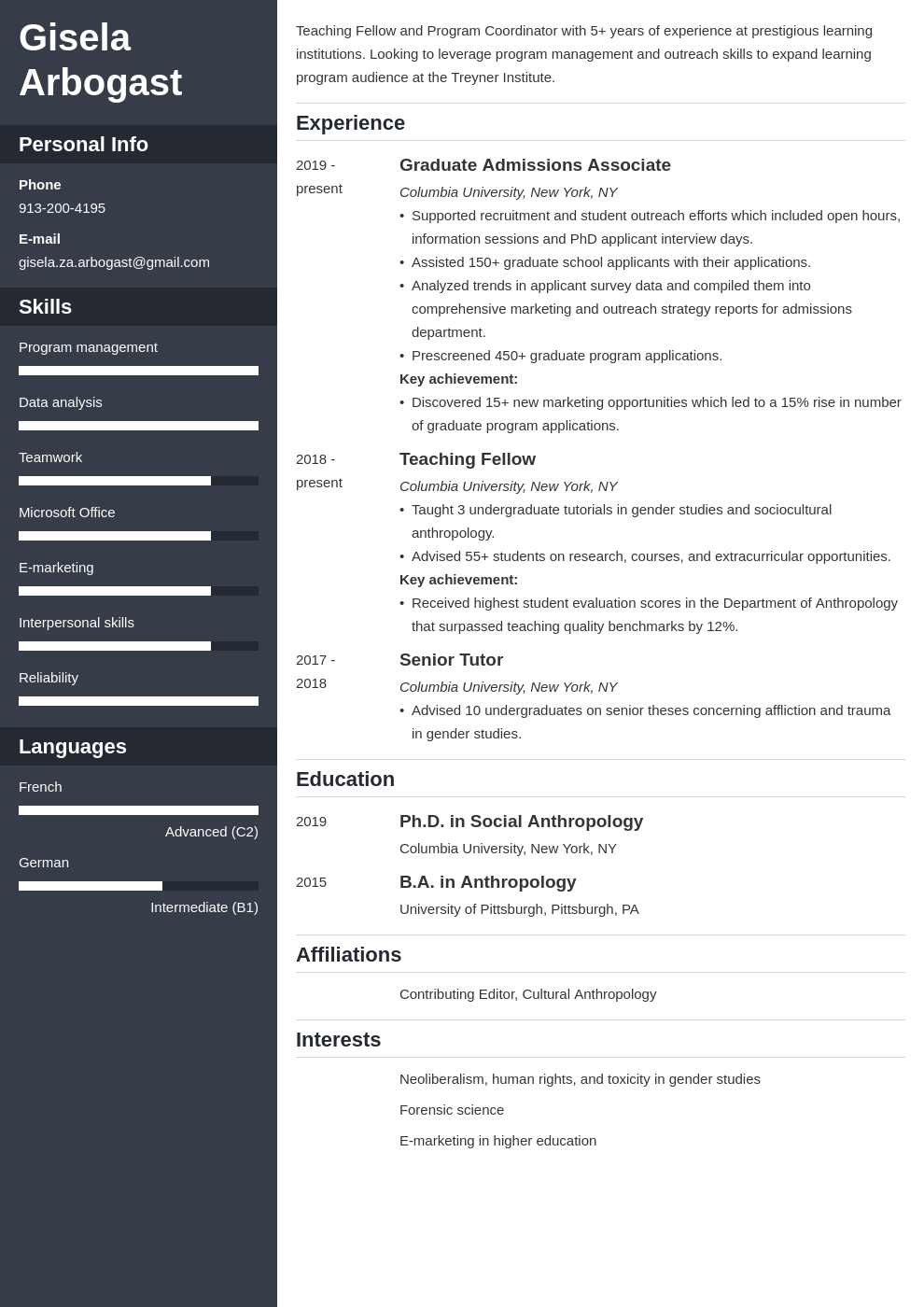
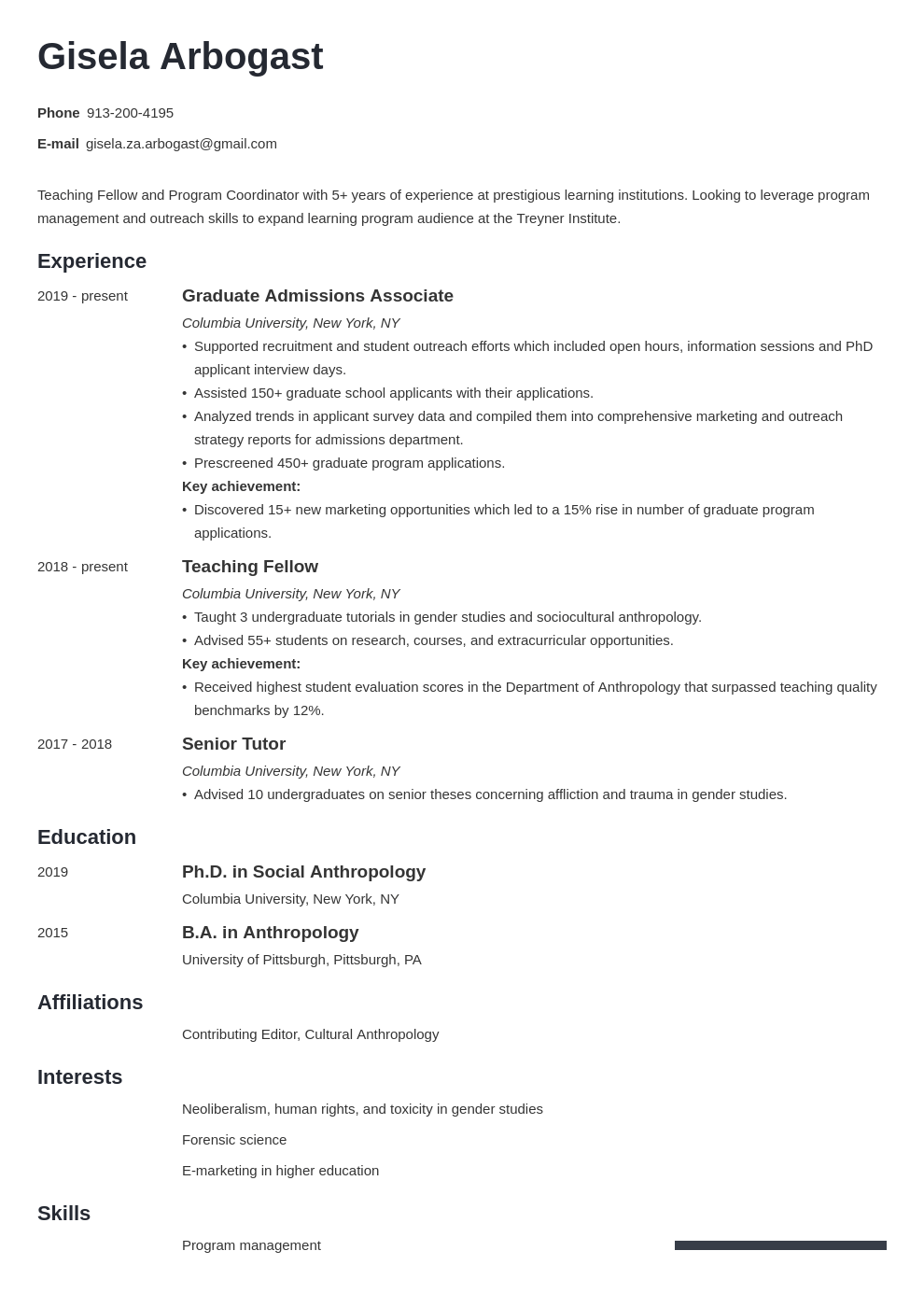
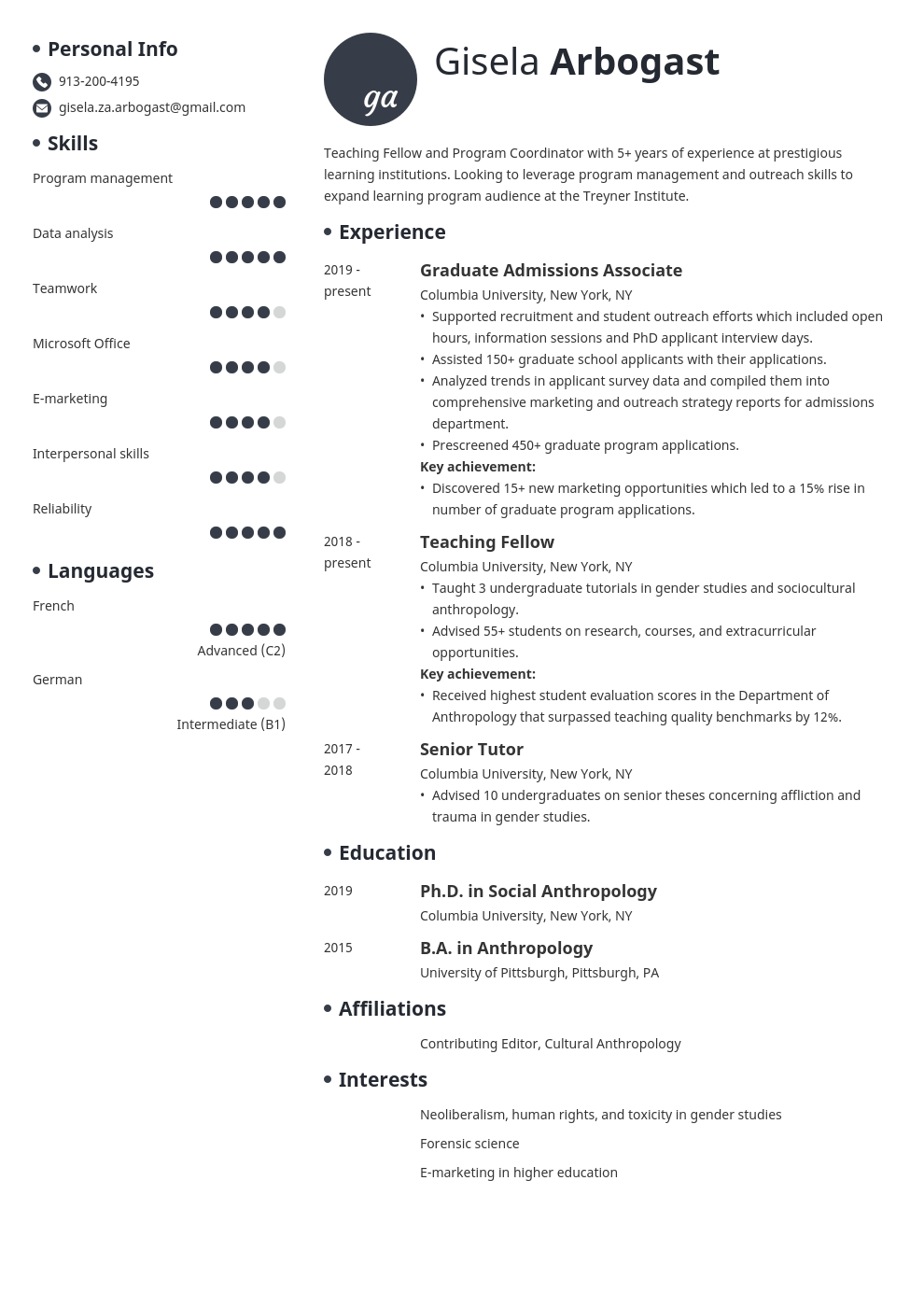
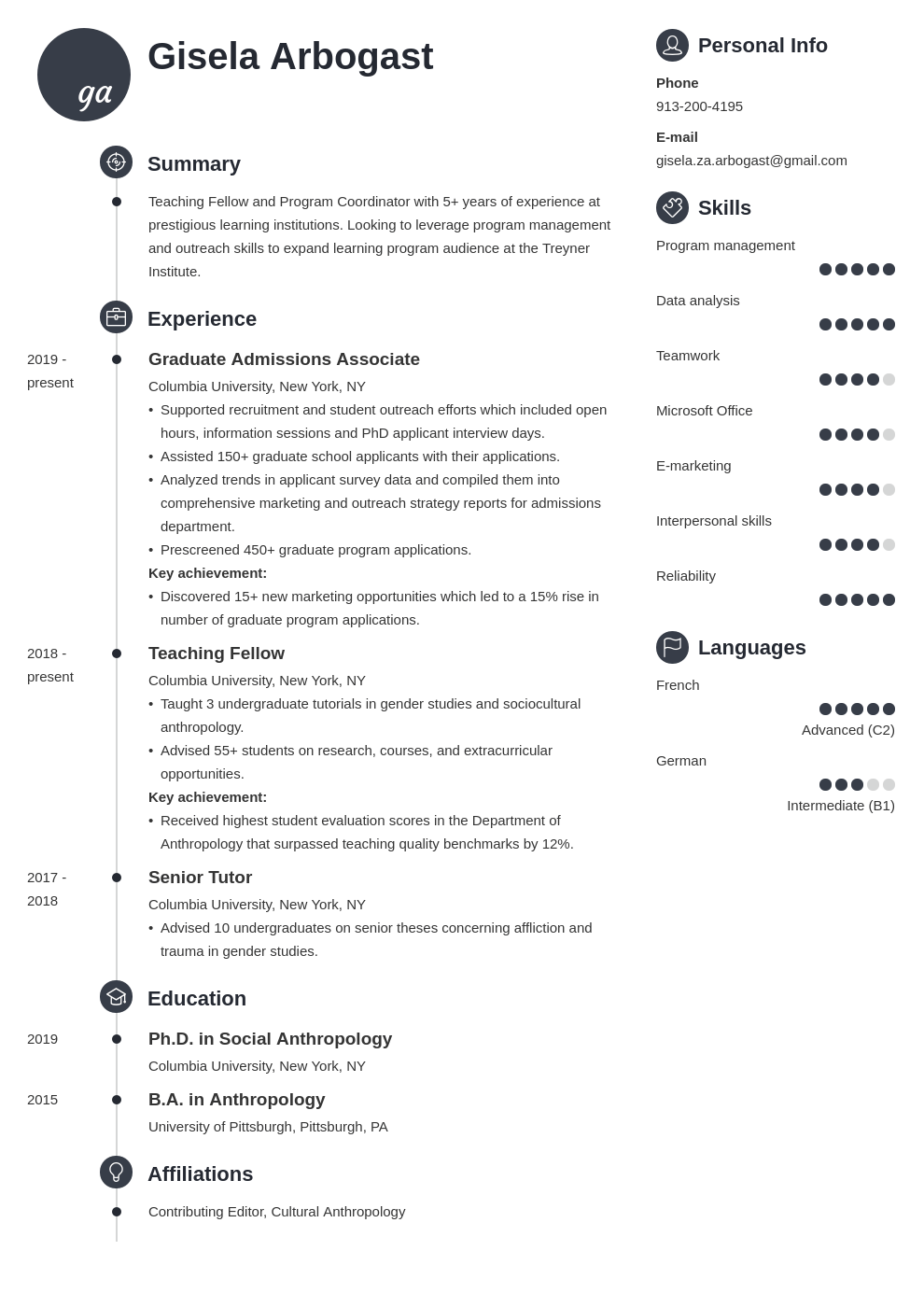
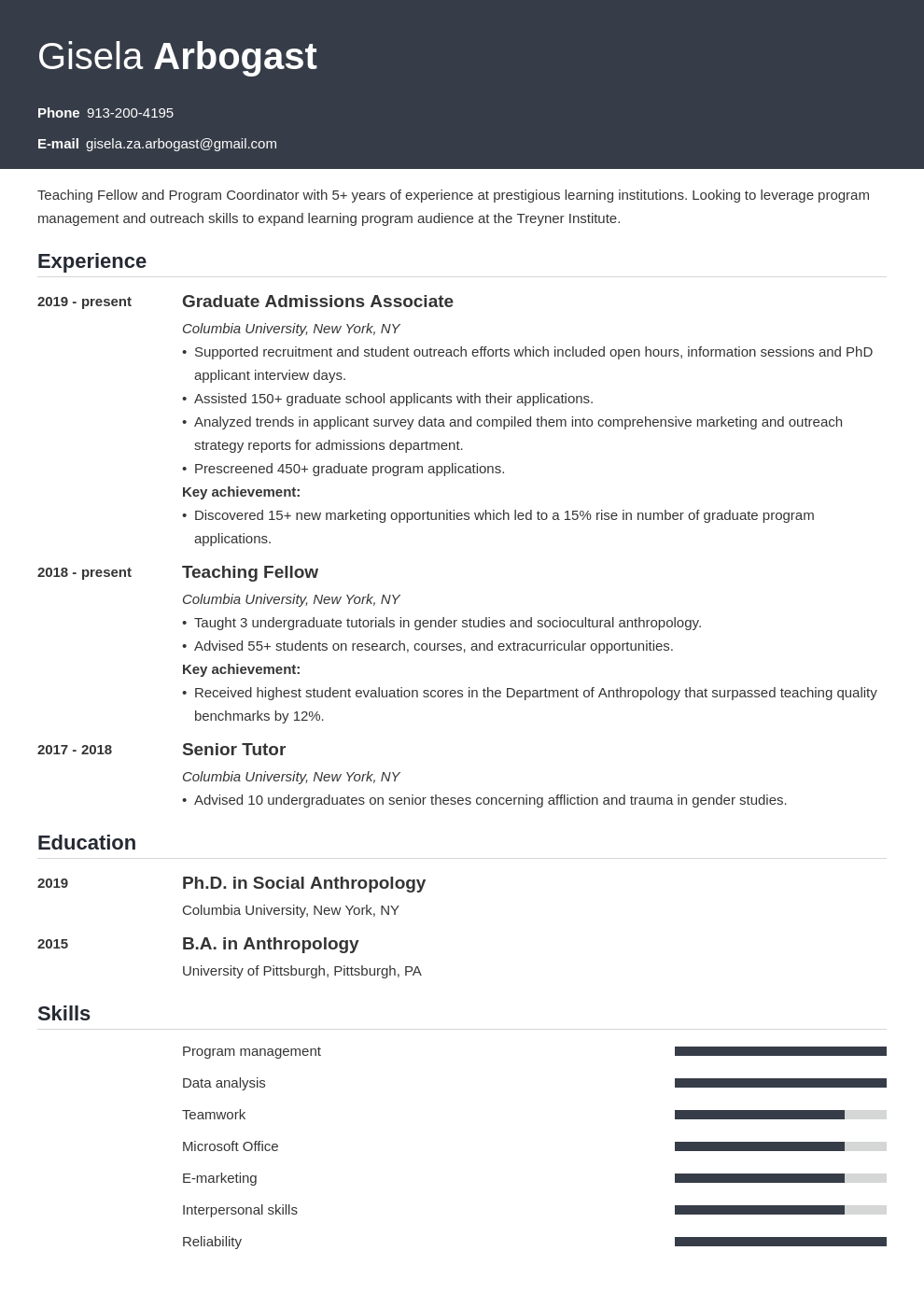

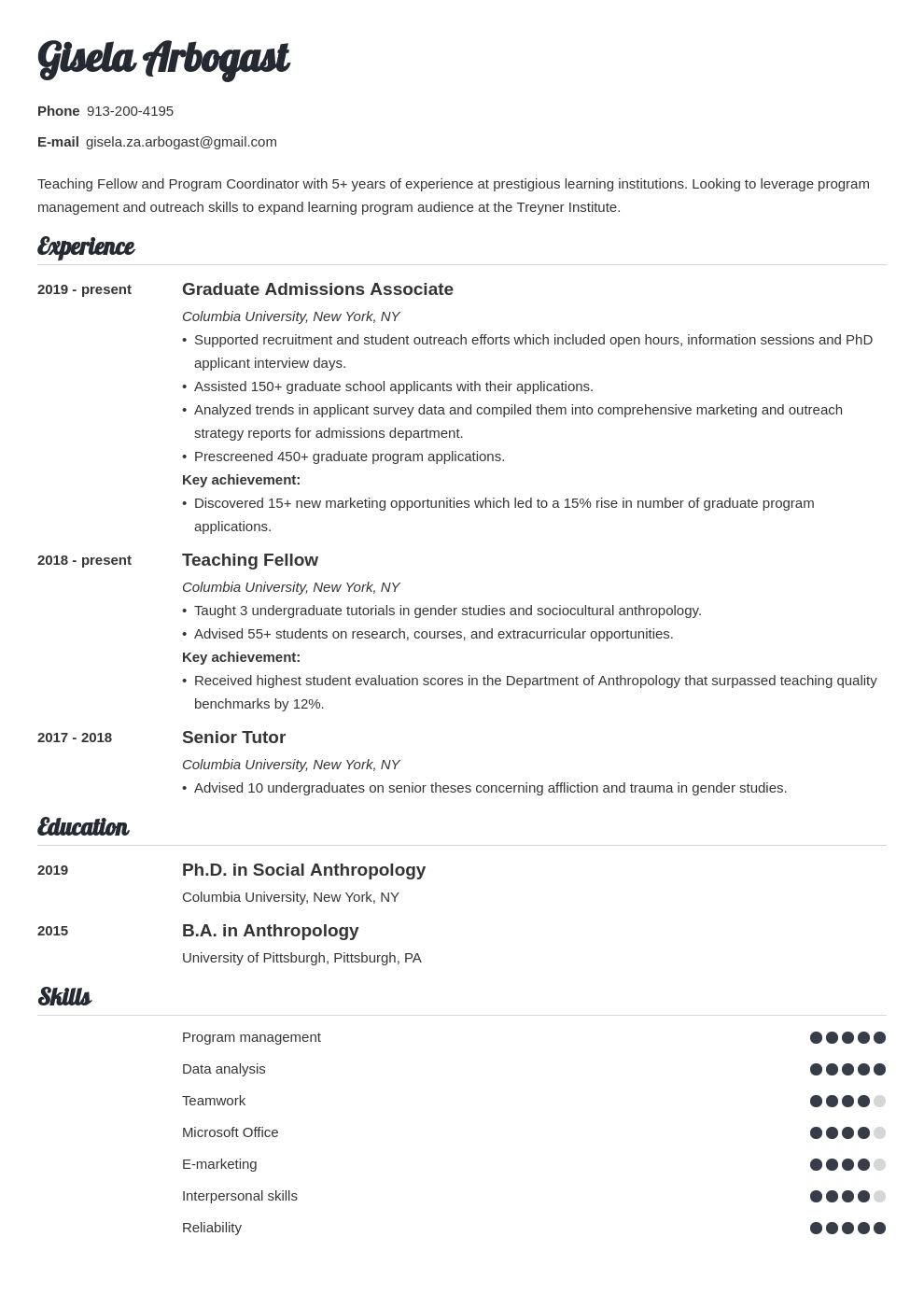
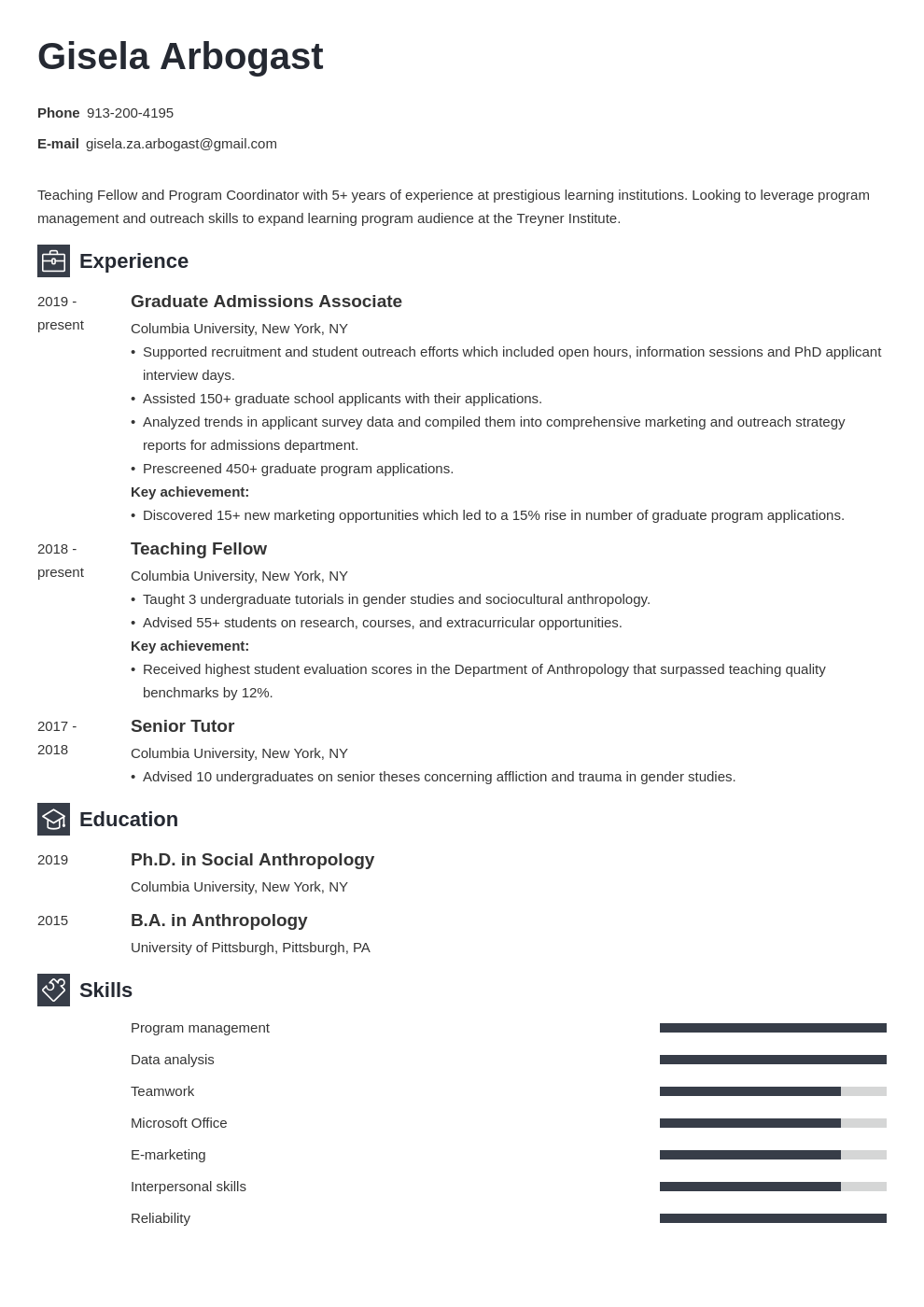
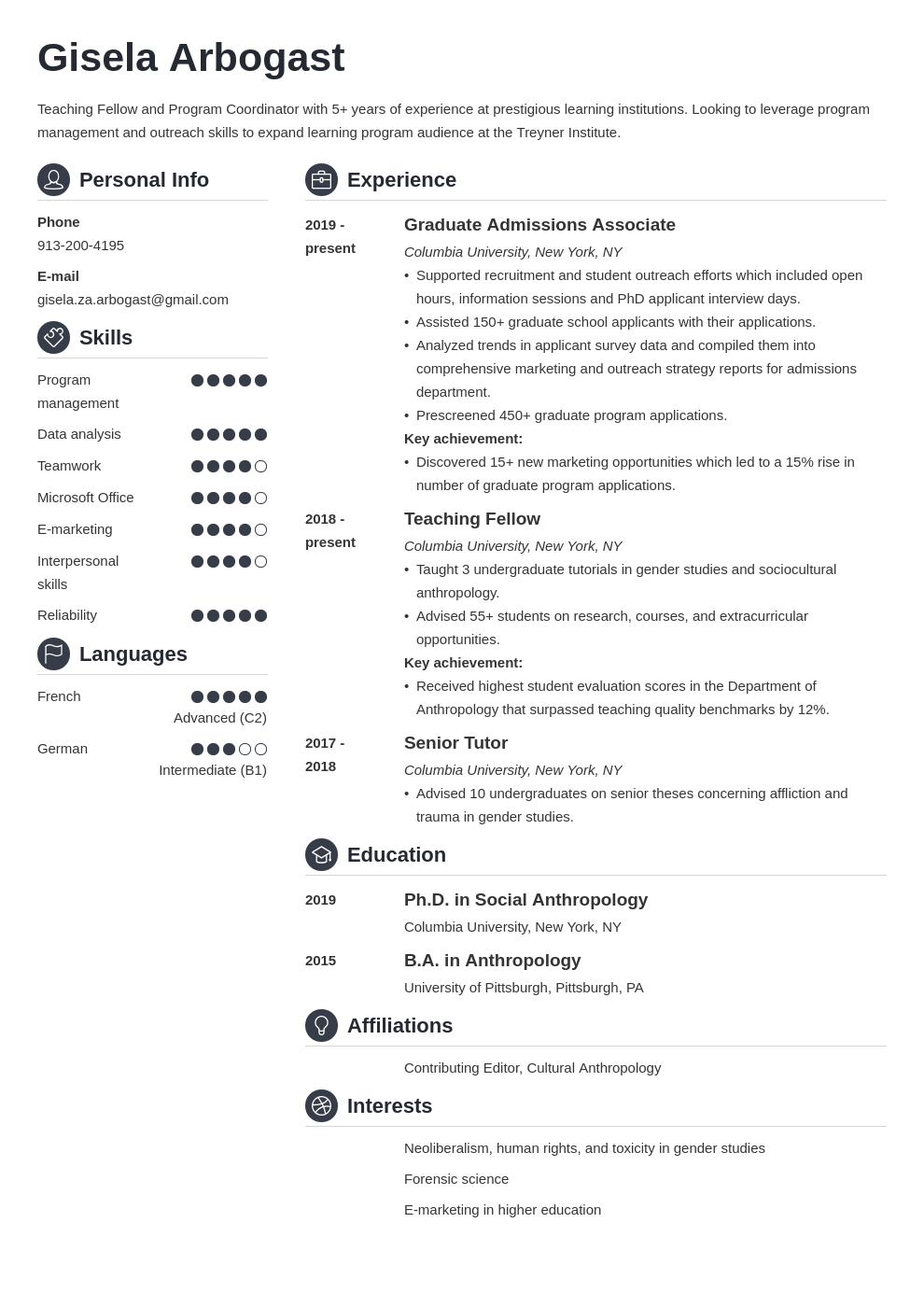
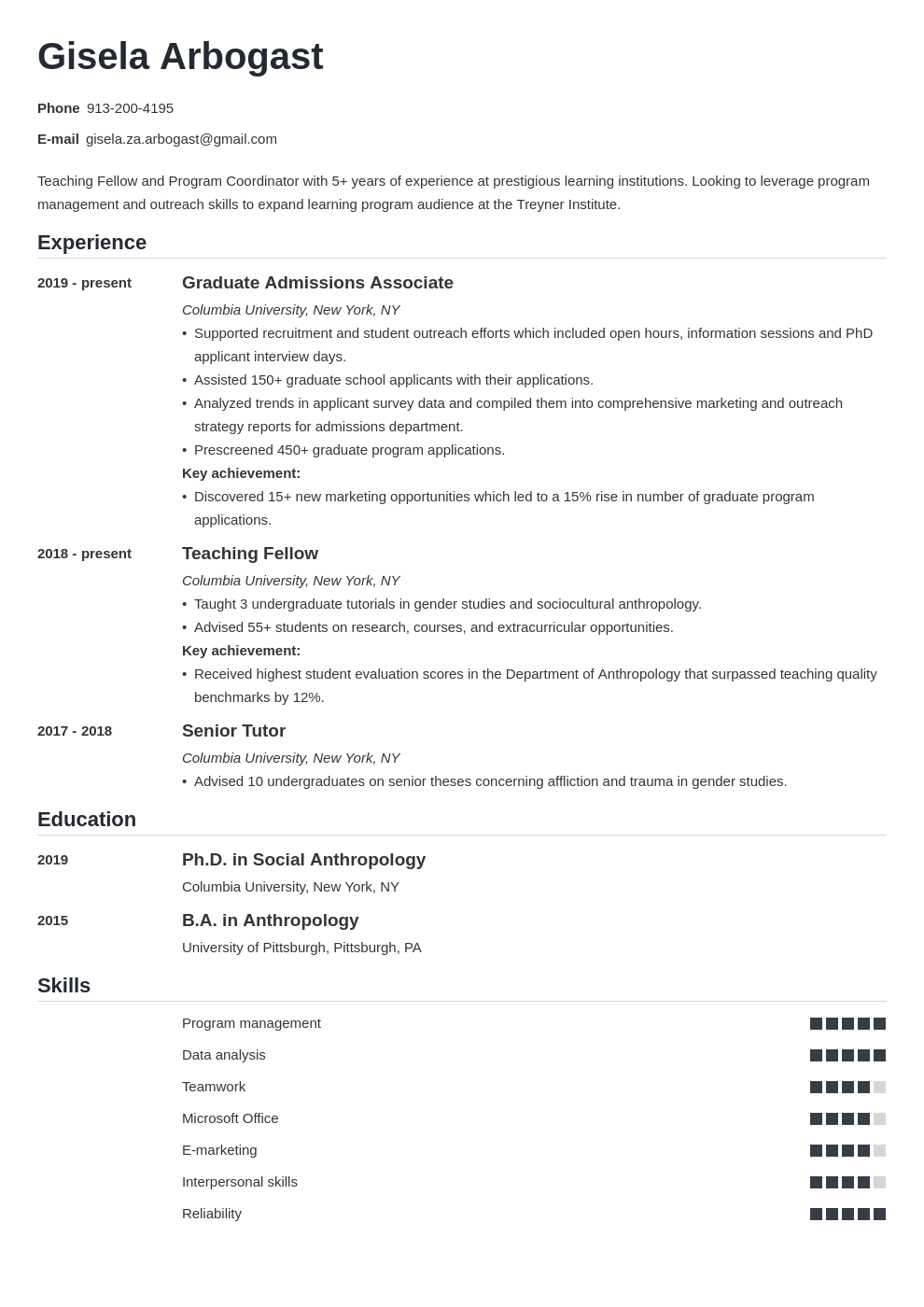
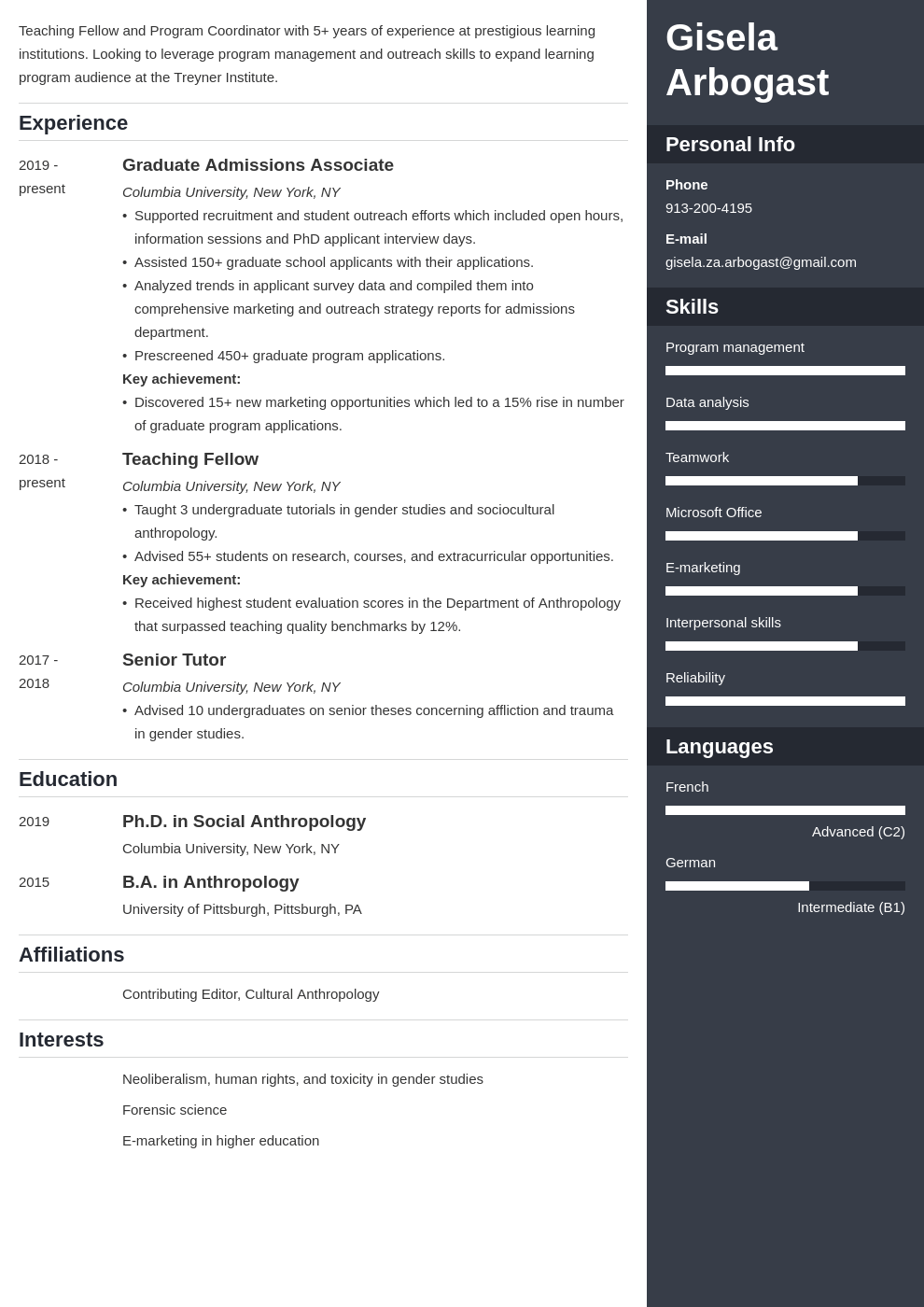

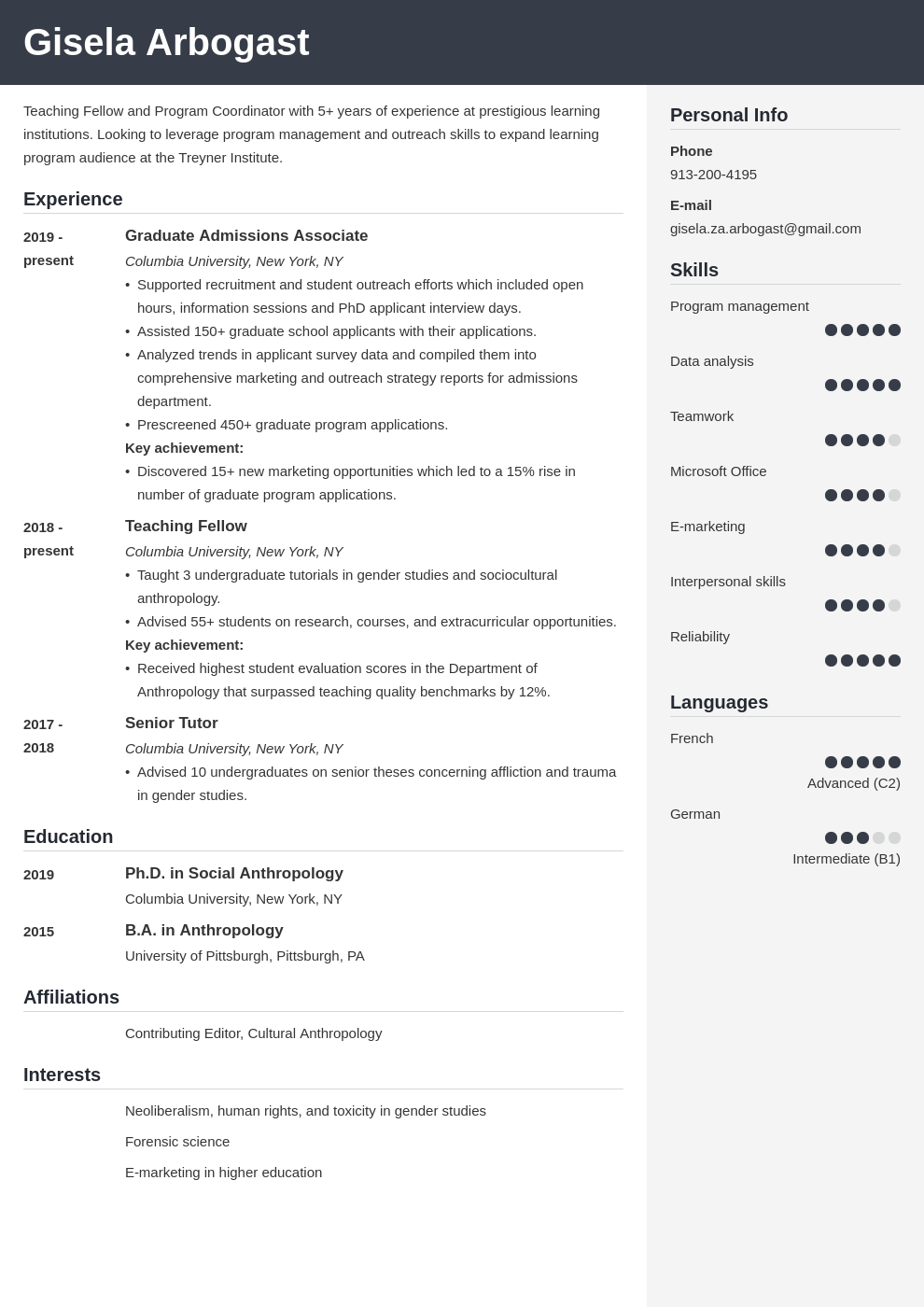
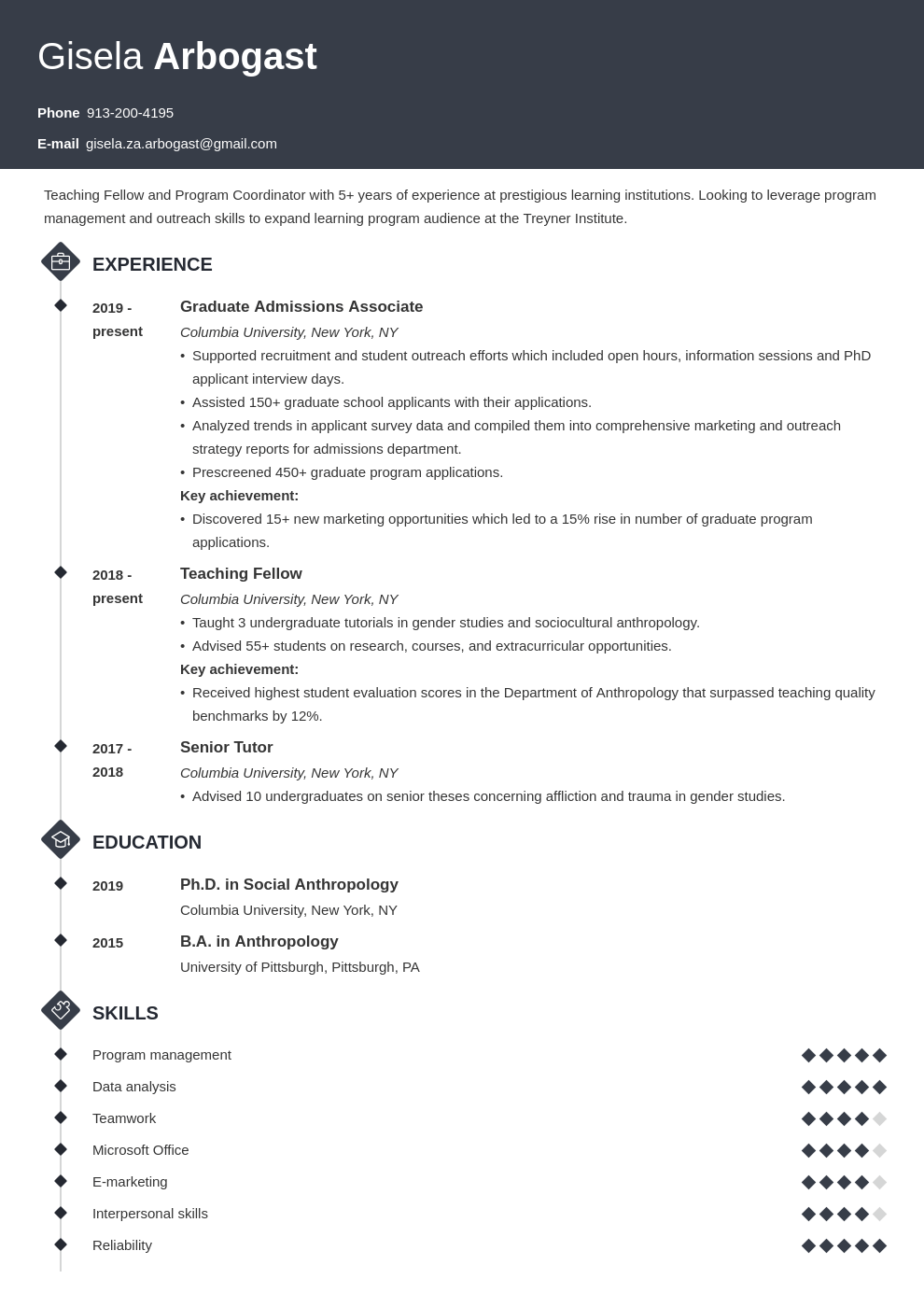
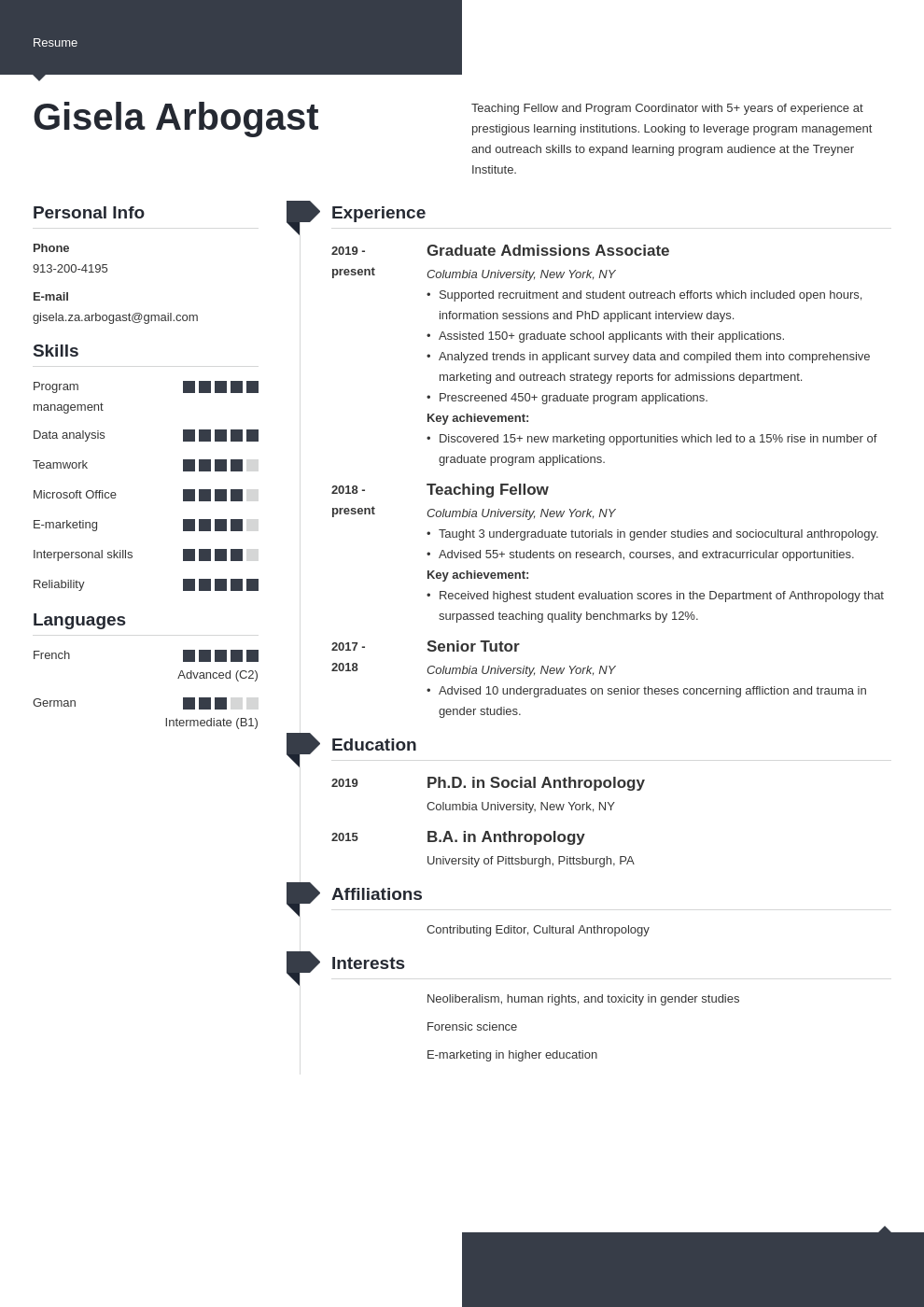
Bad resume examples are useful for two reasons. One: most of the time they’re funny resumes to read. Two: you can learn how not to make a bad resume yourself.
If you’re serious about getting a job, you must know how an ATS works. Otherwise, you’ll expend your time and energy making resumes no one will ever have a chance to read.
Should I put my address on my resume? It seems impossible to get a straight answer. We examine the pros and cons and put this issue to bed once and for all.

